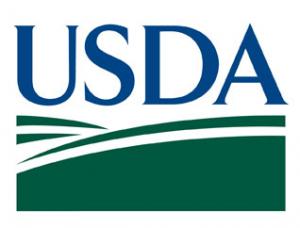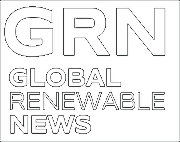By Odile Renaud-Basso
While the world has rightly been concentrating on the coronavirus pandemic and its economic fallout, the biggest challenge on the planet remains averting the much worse climate crisis looming unless we radically restructure the way we live and work.
This is why the worldwide policy discussion on economic recovery post-Covid has focussed so strongly on a green recovery, coupling the investments needed to build back now with those required in the crucial decade to come to achieve the bigger climate goal.
And this is why the European Bank for Reconstruction and Development has reinforced its position as a leader in environmental and sustainable finance with an ambitious plan to broaden and deepen our climate activities. By 2025, the majority of our business will be green.
The EBRD's new Green Economy Transition (GET) approach for 2021-25, setting out this ambition, forms part of the Bank's overall strategy for the next five years. GET 2021-25 will be the EBRD's new blueprint for supporting the 38 economies where we work to pursue a green, inclusive and resilient recovery from the impact of the pandemic.
When the EBRD was founded in 1991, it faced unique sustainability challenges. Its first countries of operations showed the highest levels of energy consumption and carbon intensity in the world. Even today, our regions - spanning from central Europe to Central Asia and the southern and eastern Mediterranean - account for 11 per cent of the word's GHG emissions while generating only six per cent of global GDP, and many of the countries we operate in are highly vulnerable to the impacts of climate change.
This means greening our regions has always been at the core of our operations. Over the past 15 years, we have provided 36 billion to around 2,000 green projects.
In 2015, the year of the Paris Agreement, we launched our Green Economy Transition approach in 2015, pledging to raise the proportion of our green investments from an average of 24 per cent to 40 per cent - a target met with 2019's 46 per cent.
The new GET 2021-2025 approach is the next step on our green journey. Its increased ambition takes us further along the path the world as a whole needs to follow.
To help EBRD economies and clients identify both climate opportunities and risks, the Bank has identified a set of strategic priorities that reflect sectors in which a rapid and far-reaching transition is most urgent.
As well as at least 50 per cent of investments in the green sector by 2025, the upscaled green plan also commits the EBRD to focus on aligning with the Paris Agreement goals, with a decision on full alignment to be considered within the next two years.
Another focus is enhancing policy engagement to develop long-term decarbonisation and resilience pathways. As the world moves into a crucial period - the decade identified in the 2018 IPCC report as the time in which ambition must grow to allow global temperature rises to be kept below 2C - aligning different organisations' approaches and metrics becomes ever more vital for success in moving towards a low-carbon future.
Building closer partnerships at country and sector level as well as with MDBs and other institutional partners is at the core of the GET 2021-2025 approach.
The EBRD will also pay particular attention to the social implications of change. Gender considerations and the importance of a just transition, in which everyone is included as carbon-intensive industries are reshaped, will be carefully examined, as will circular economy opportunities and green digital solutions.
The new approach will broaden the range of the Bank's green investments by innovating across a range of thematic action areas including energy efficiency, adaptation, green financial systems, industrial decarbonisation, sustainable food systems, energy systems integration, cities and environmental infrastructure, sustainable connectivity, green buildings and natural capital.
GET 2021-25 offers a clear and structured roadmap towards a sustainable future. We are now entering the decade in which key changes must be made to allow global temperature rises to be kept, if possible, to 1.5C, making it necessary to accelerate the green transition.
If we fail, the consequences will be disastrous. Meeting this challenge is not just vital, it is also doable - and financially viable - if we follow the EBRD's ABC:
Our signature Agility;
Our focus on Building Back Better;
And our unrelenting Commitment both to our Clients, including many in the private sector, and to our Countries.
Odile Renaud-Basso is the President of the EBRD









